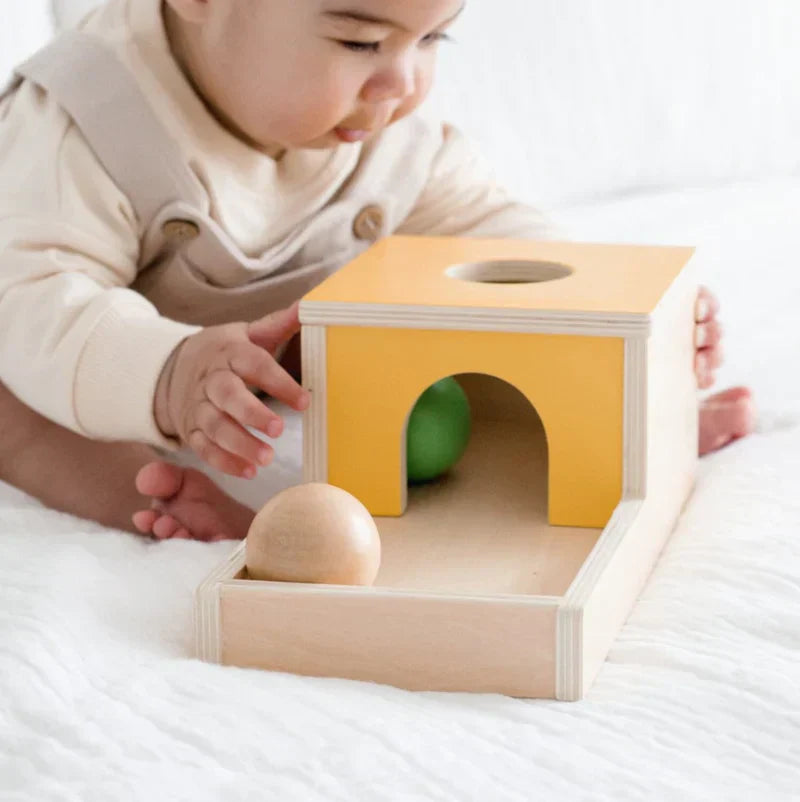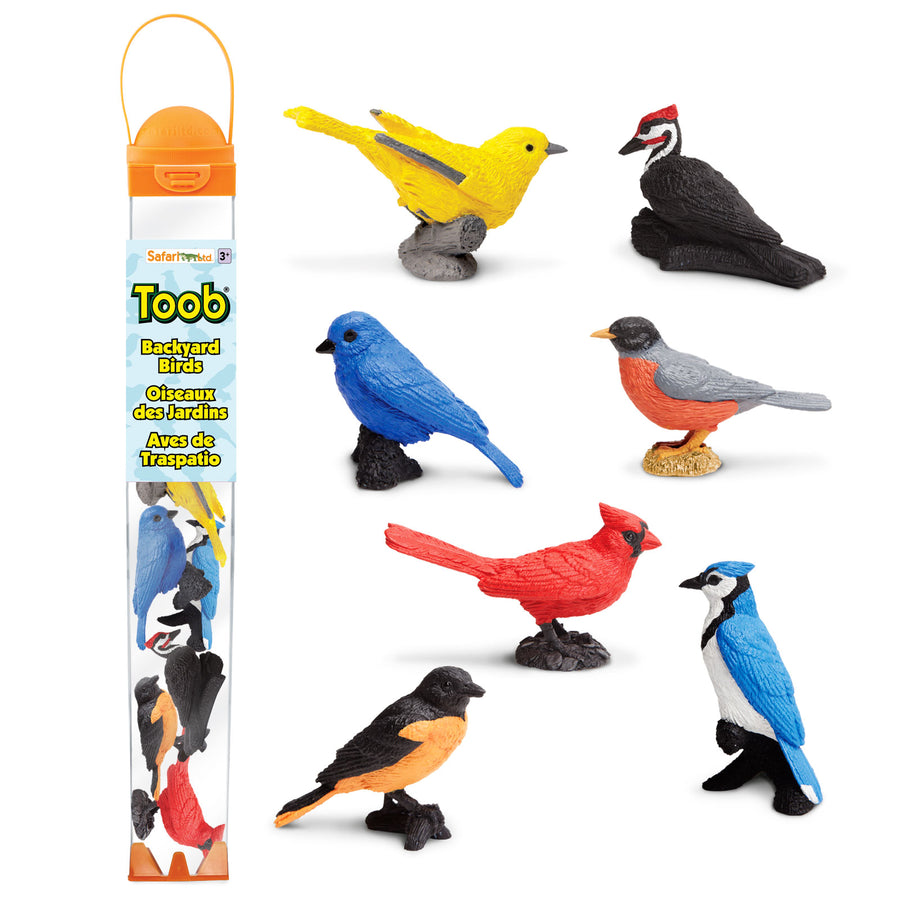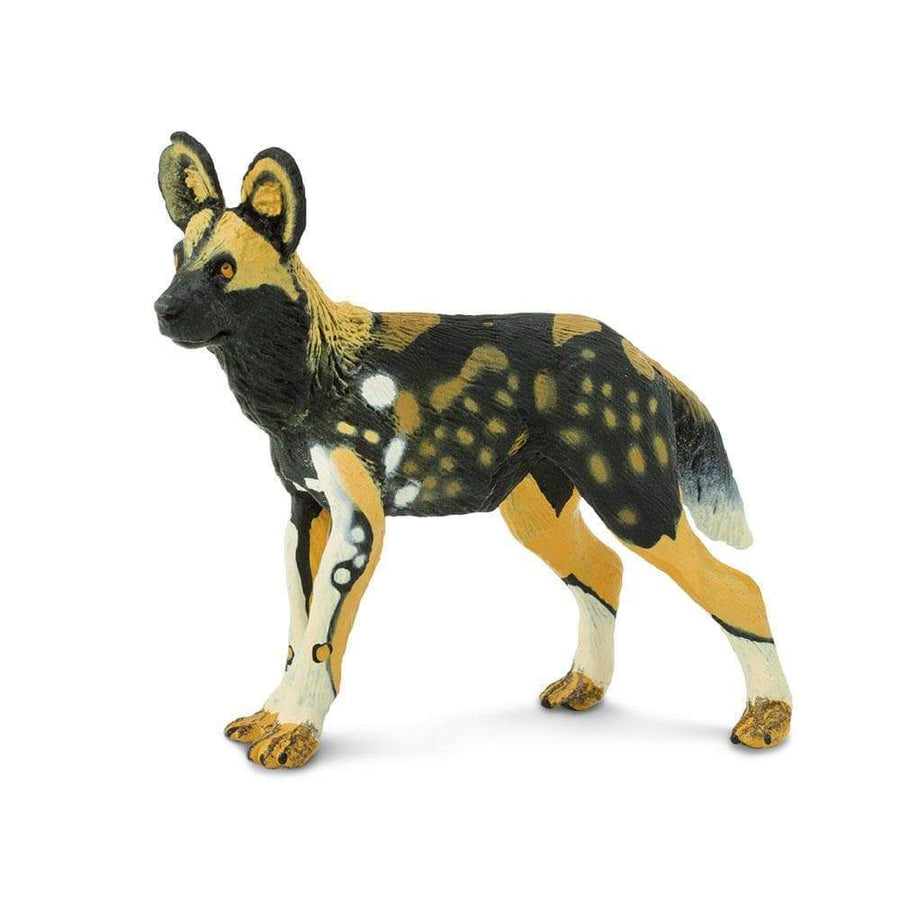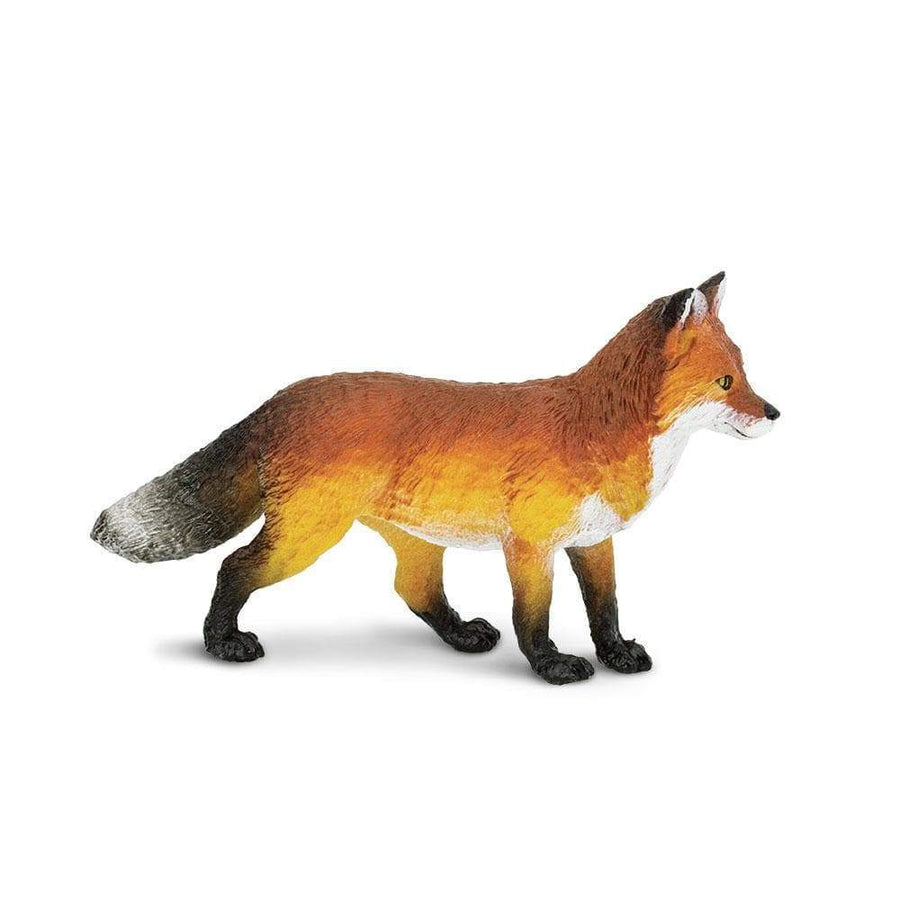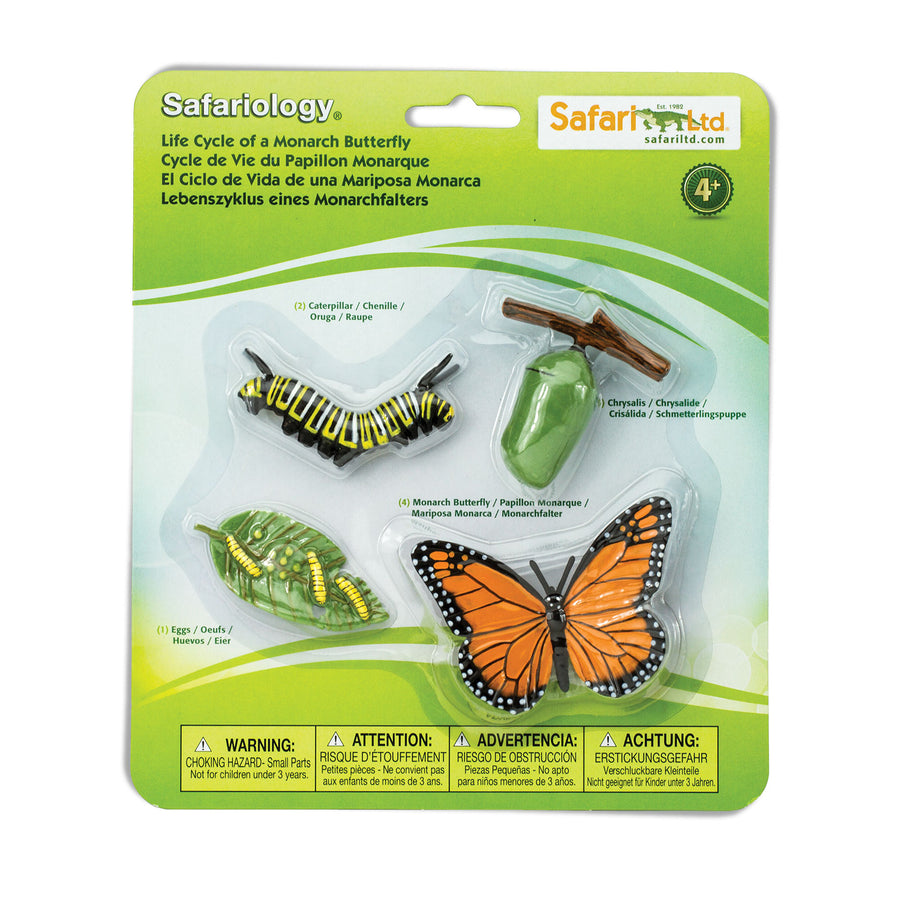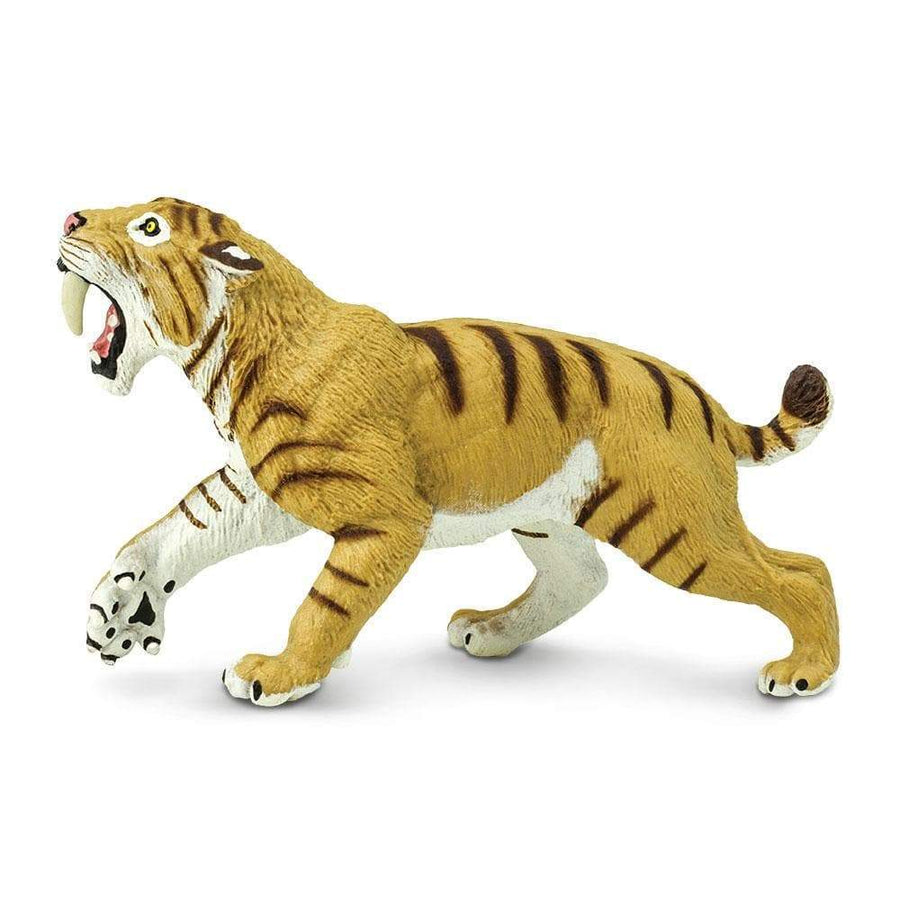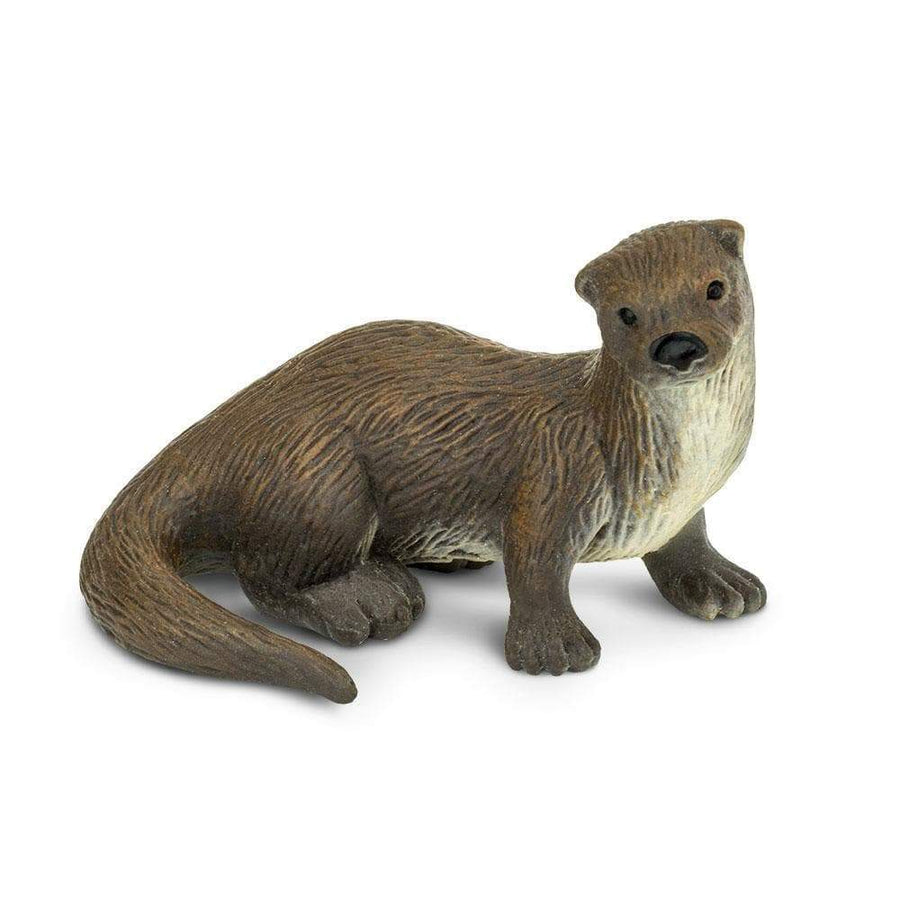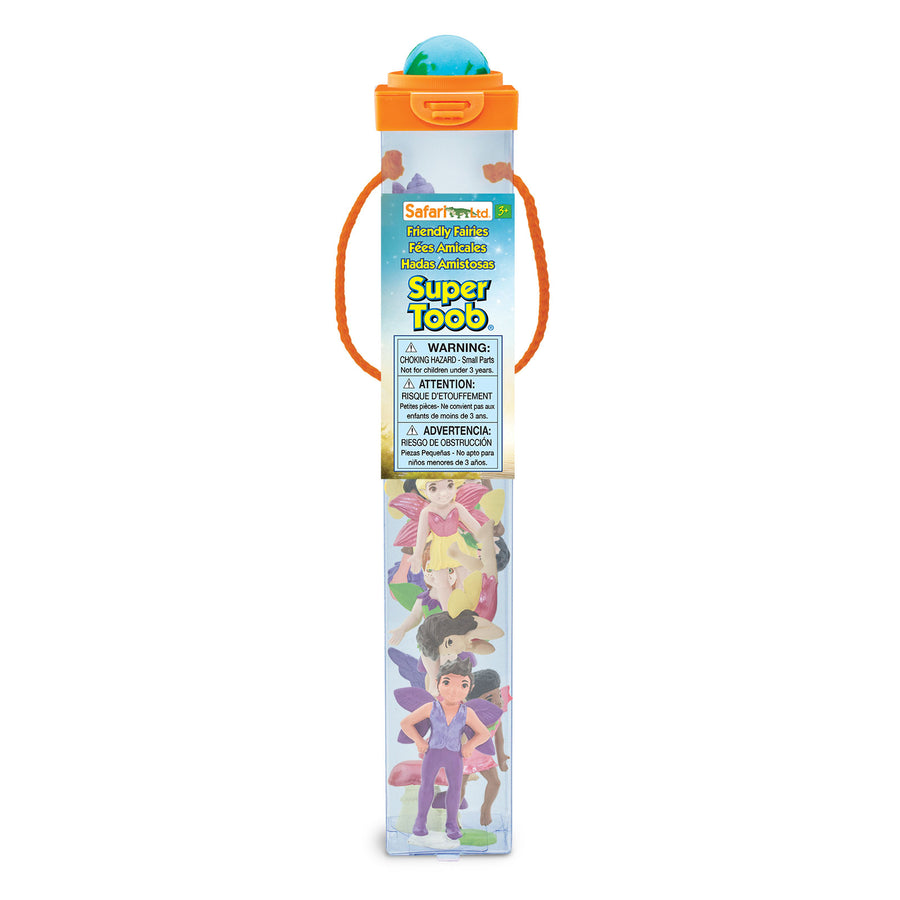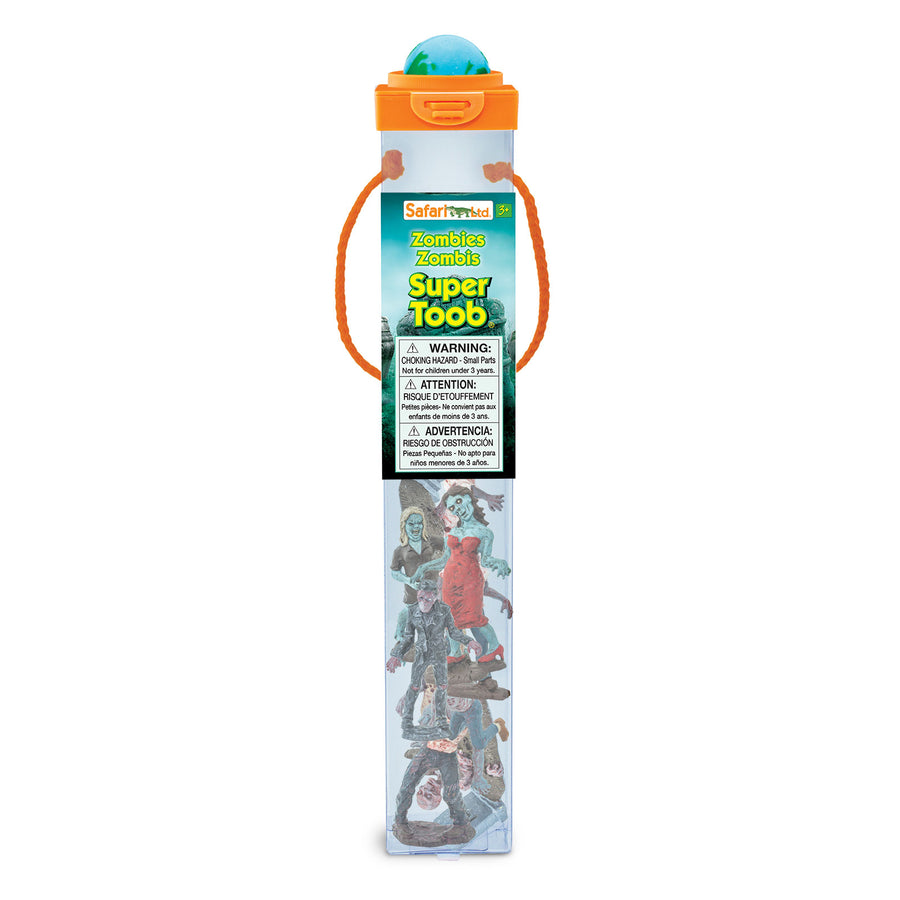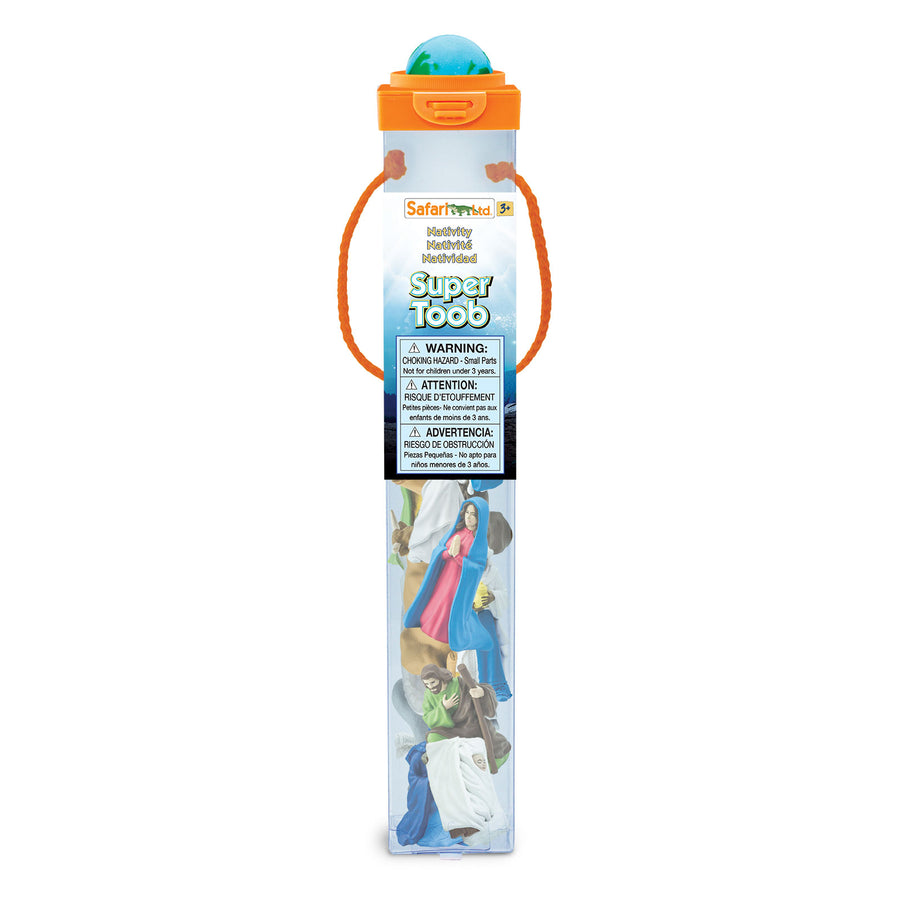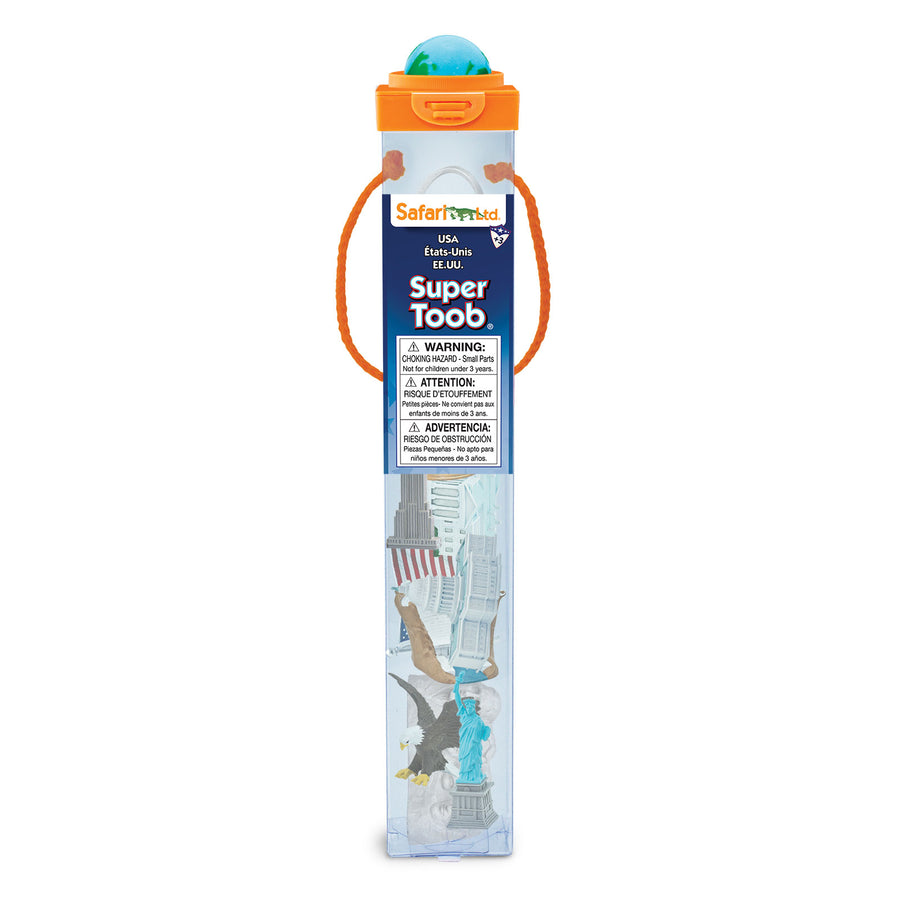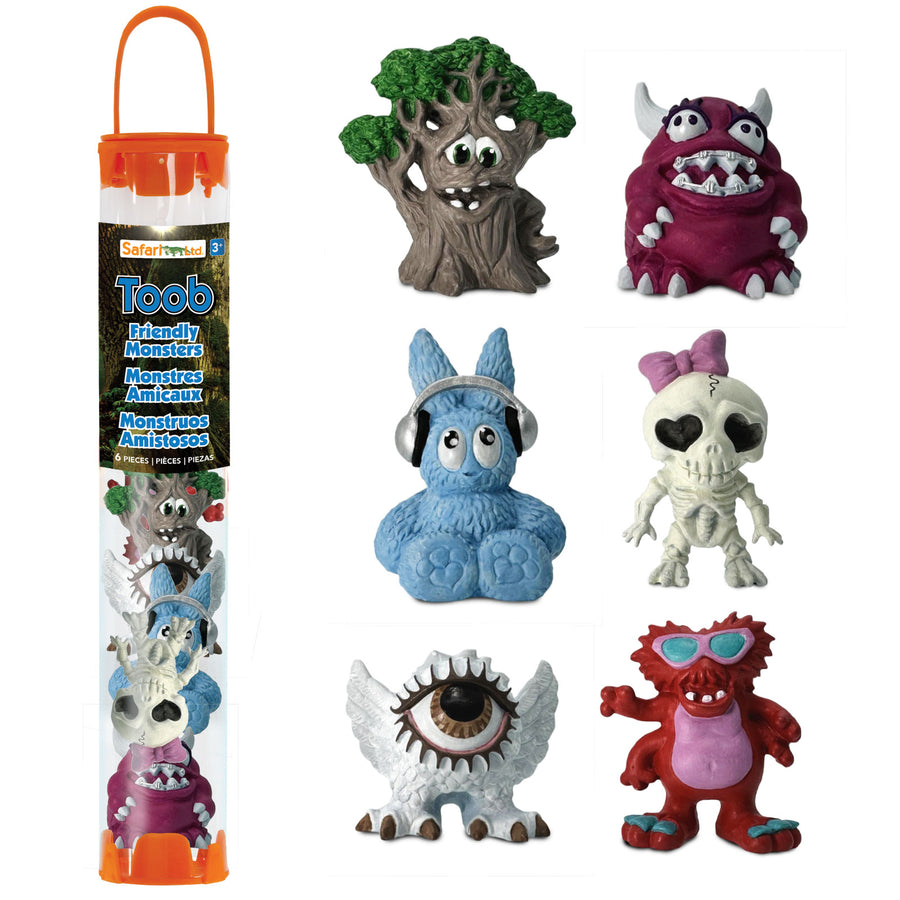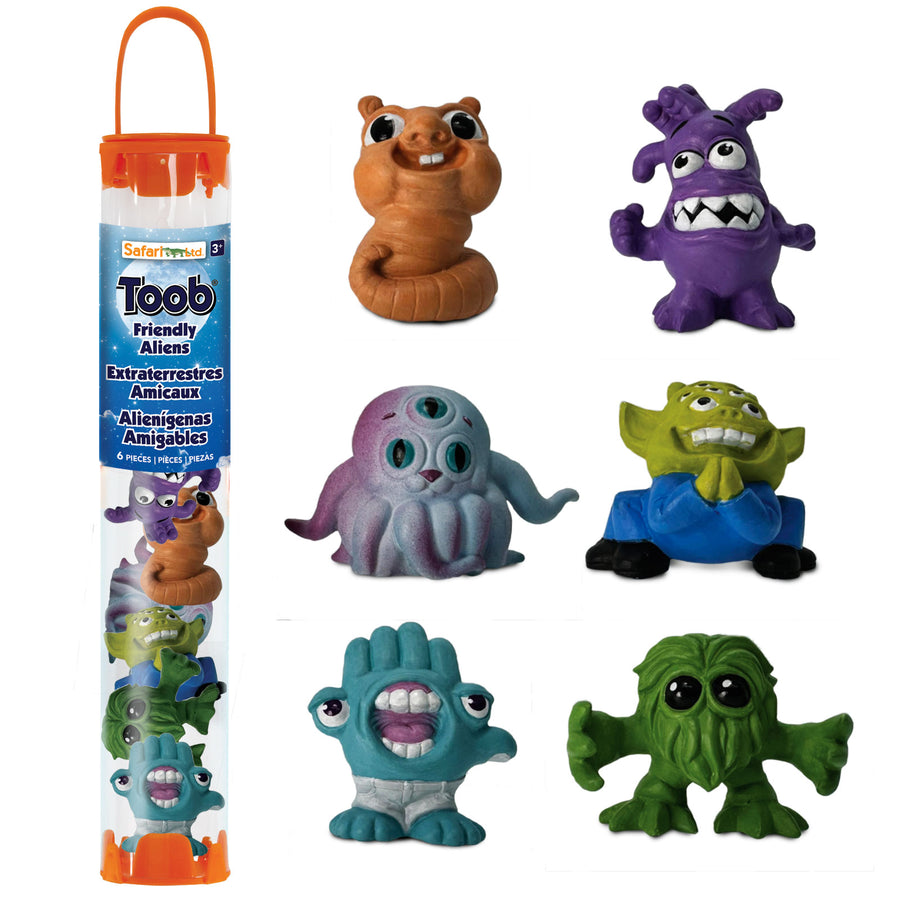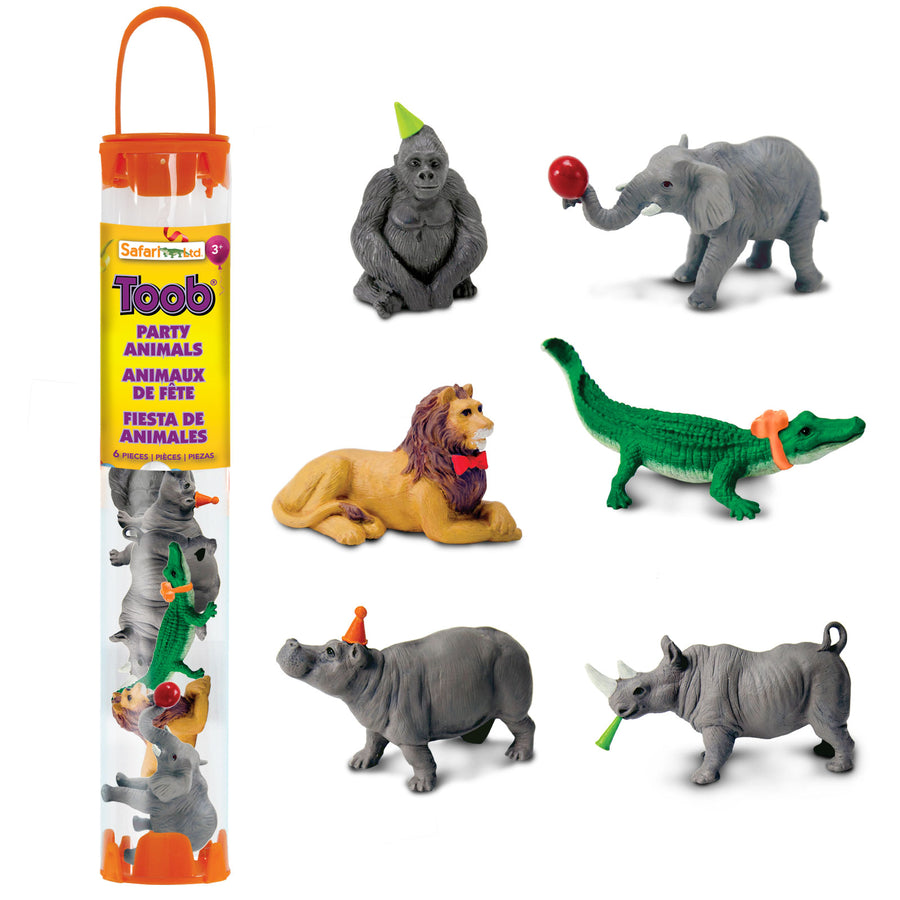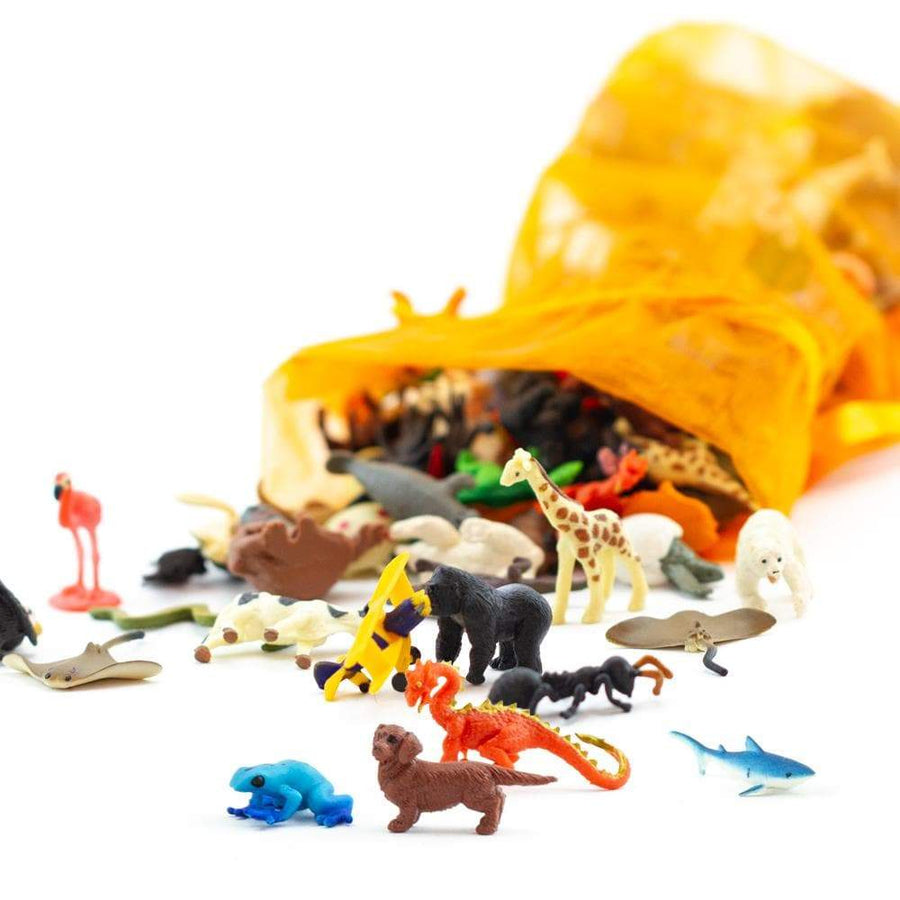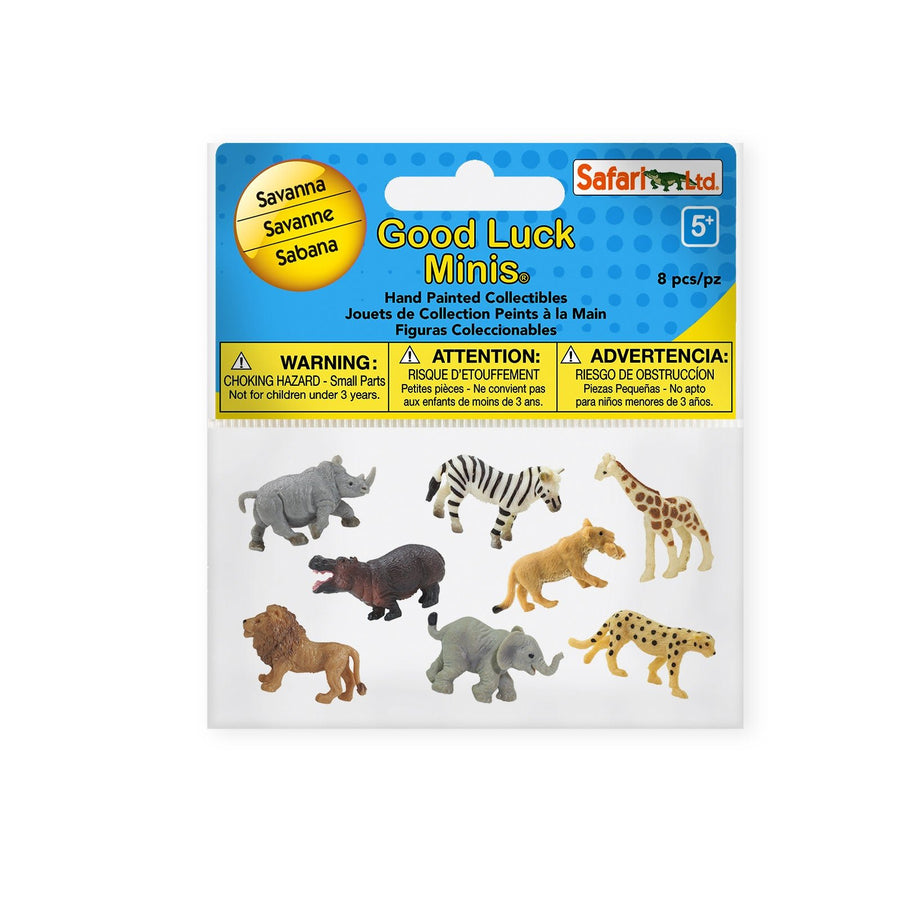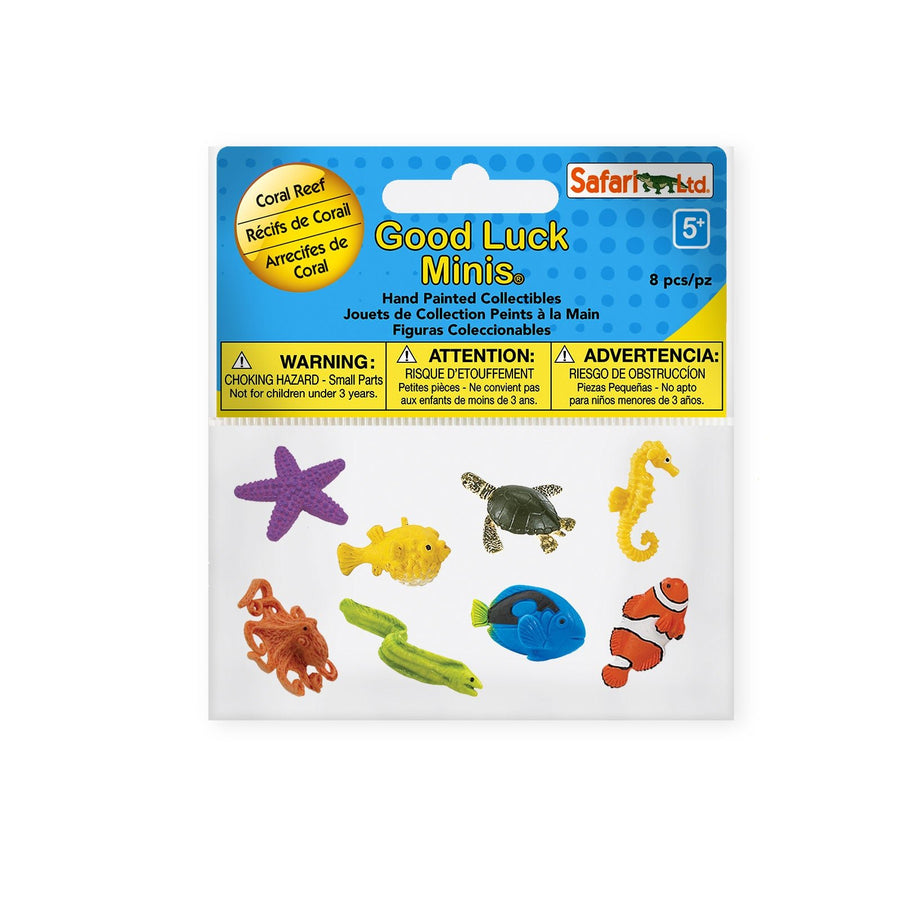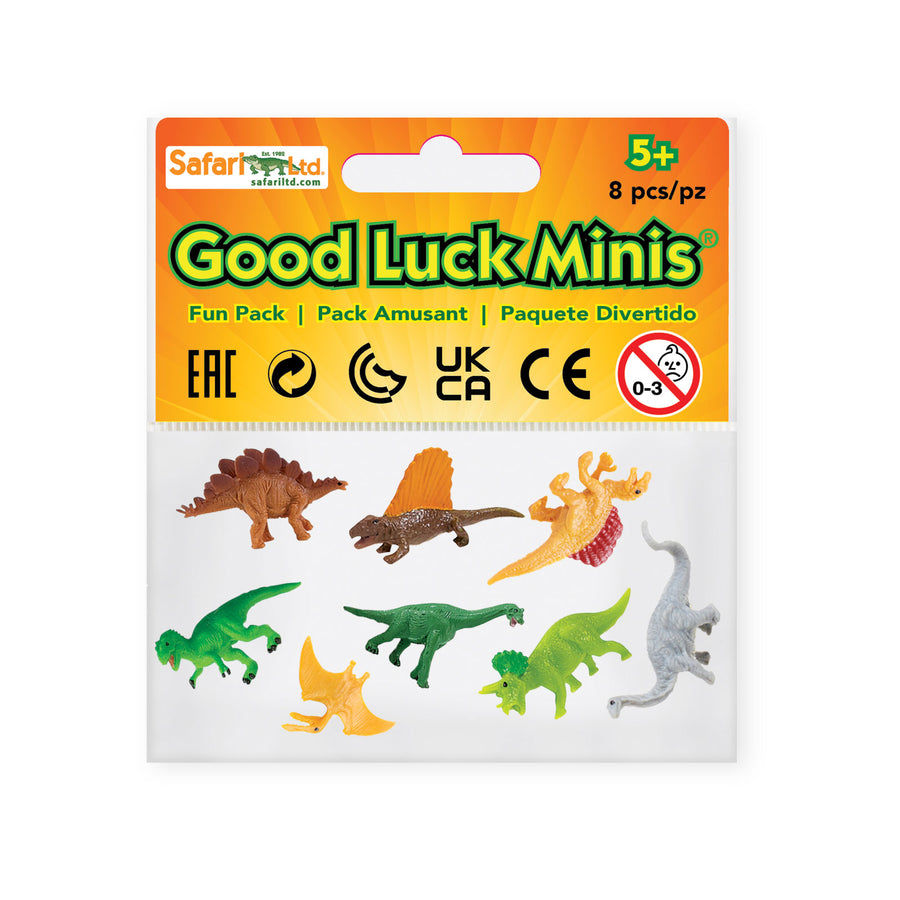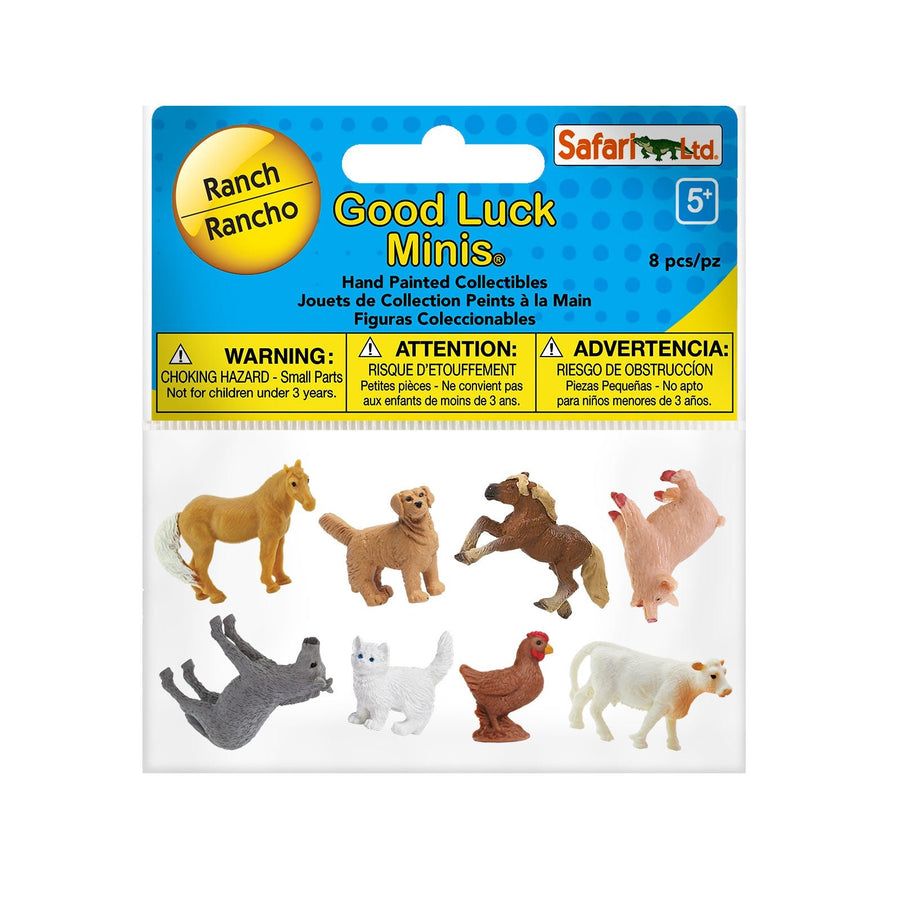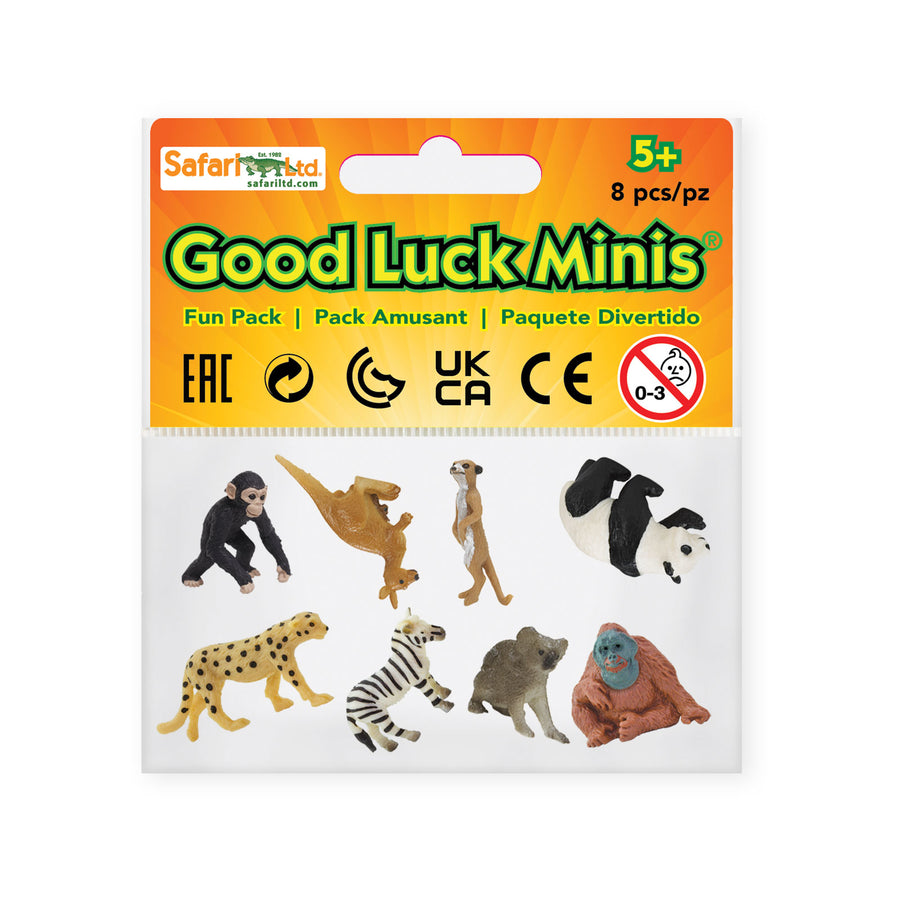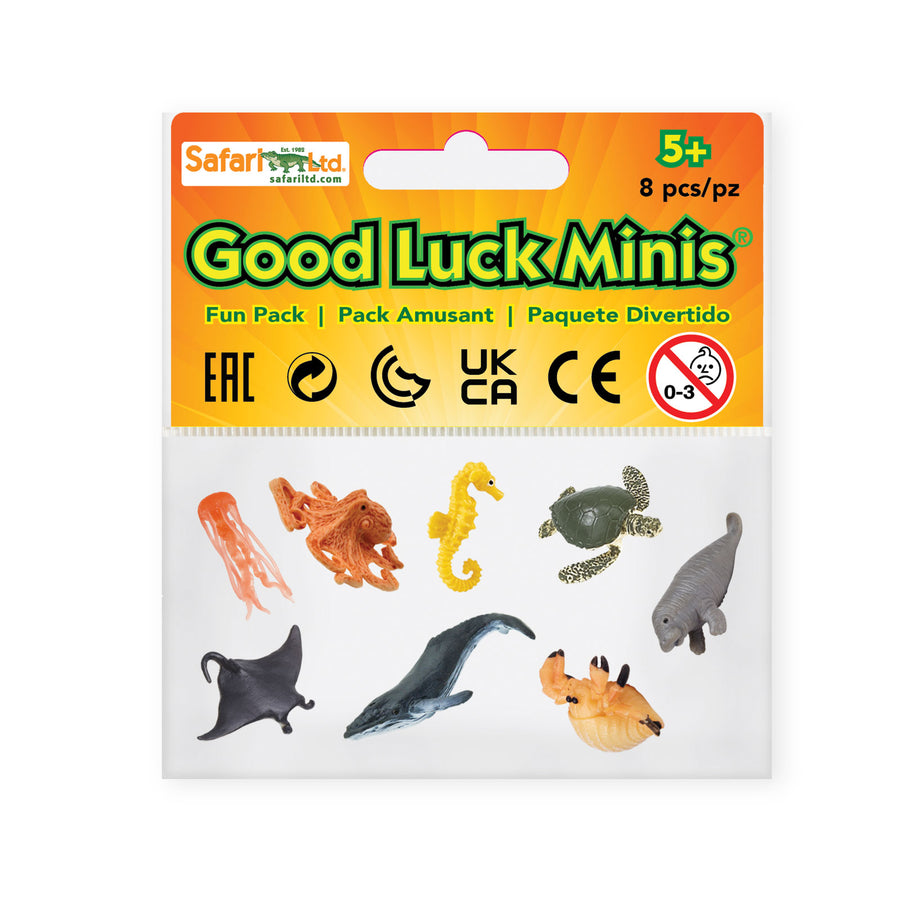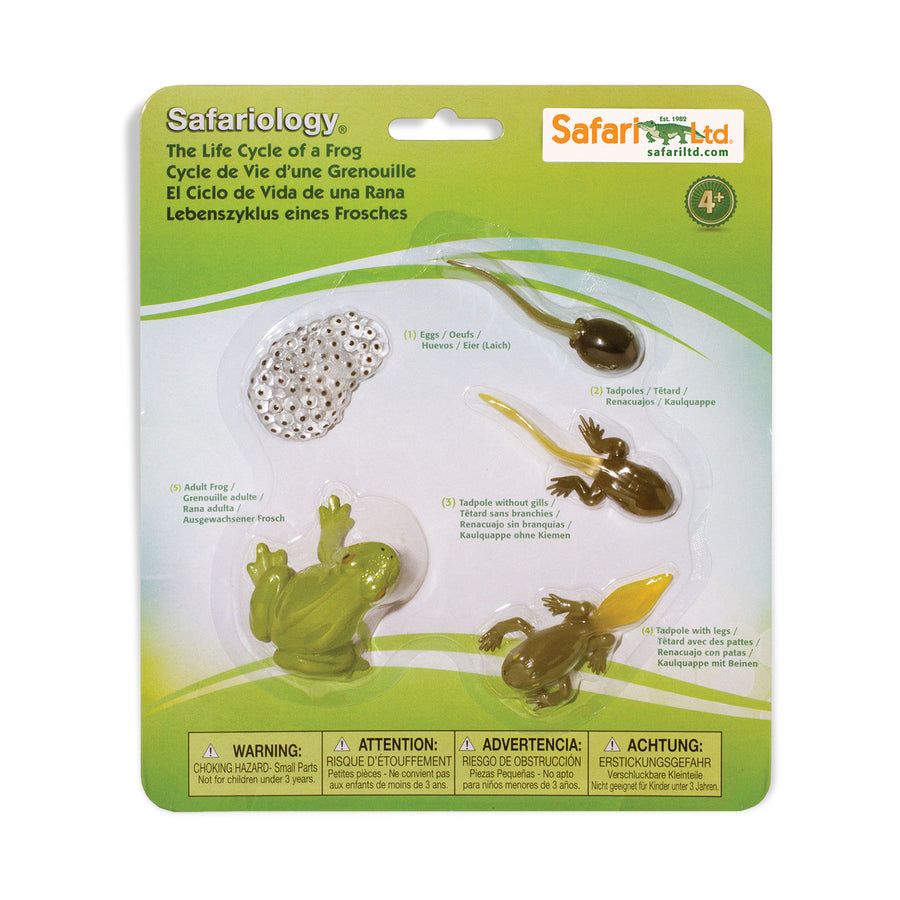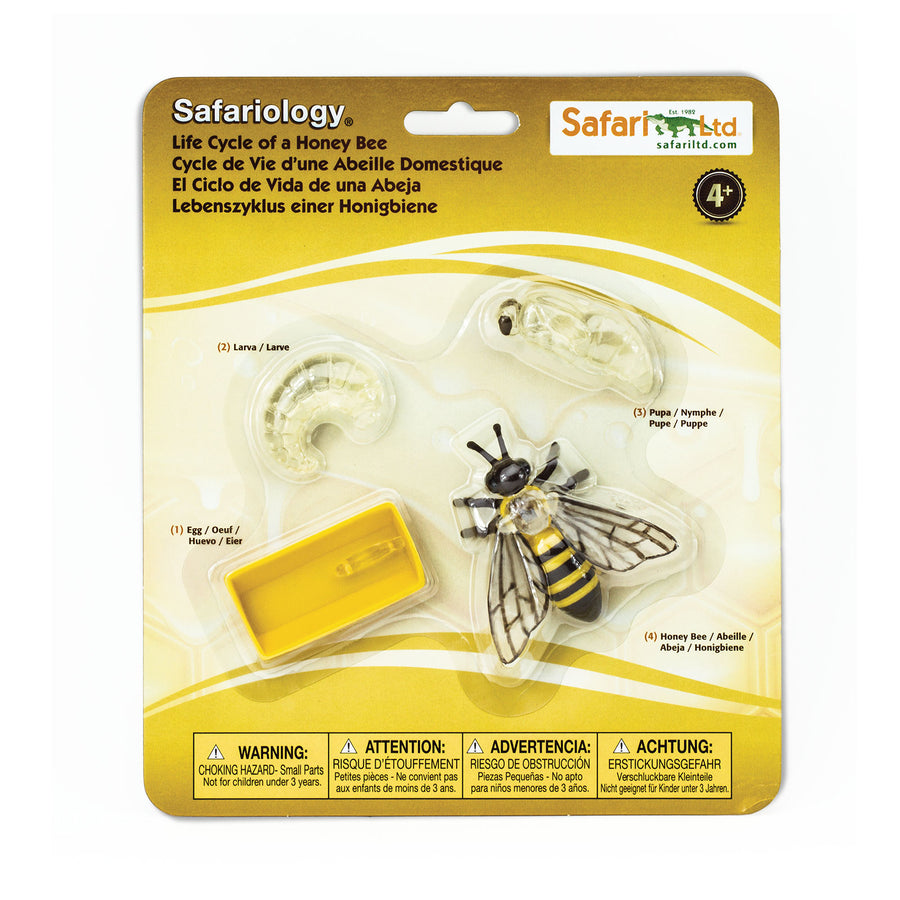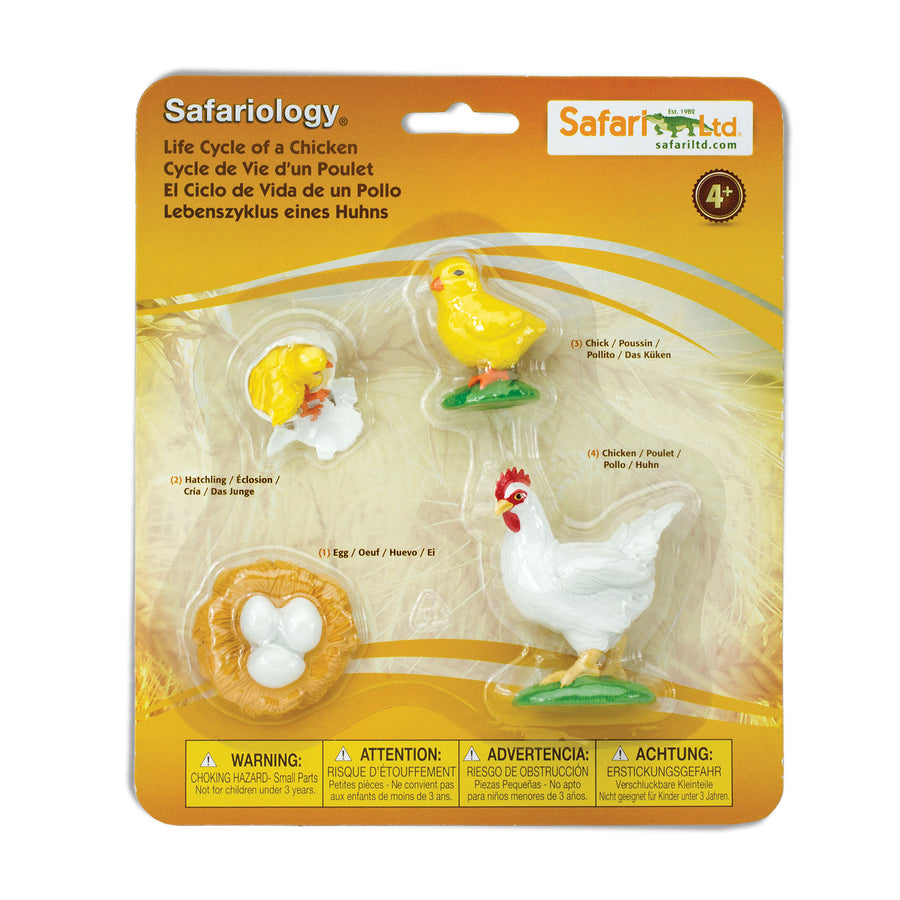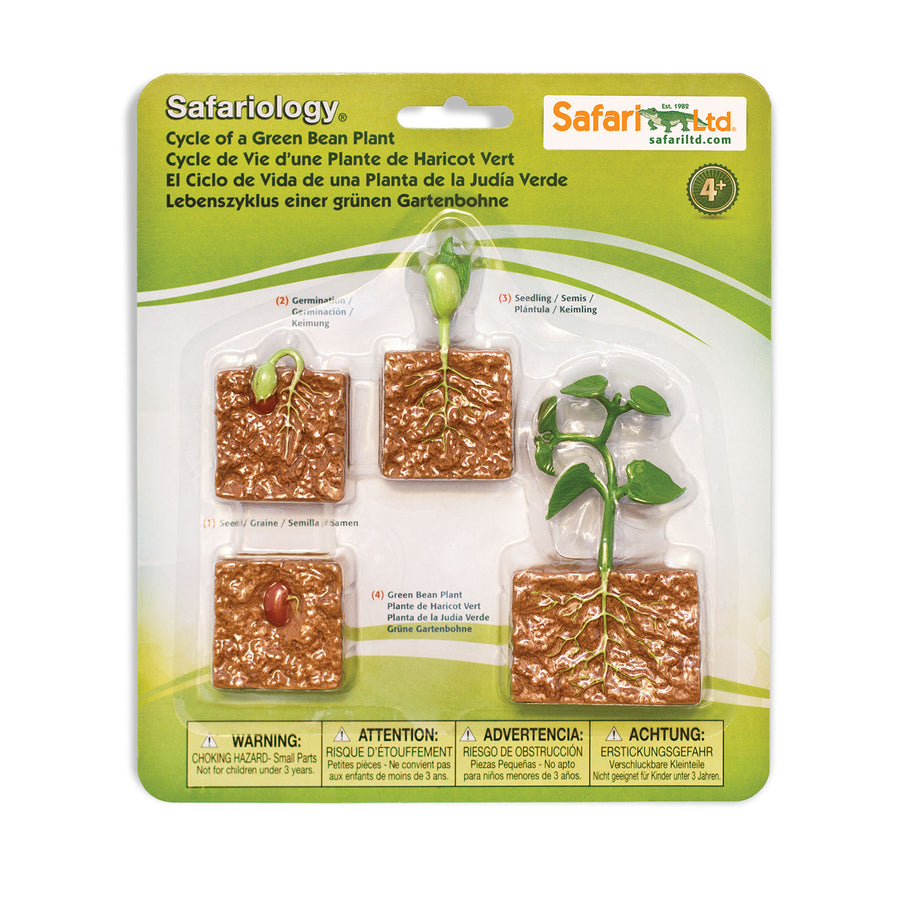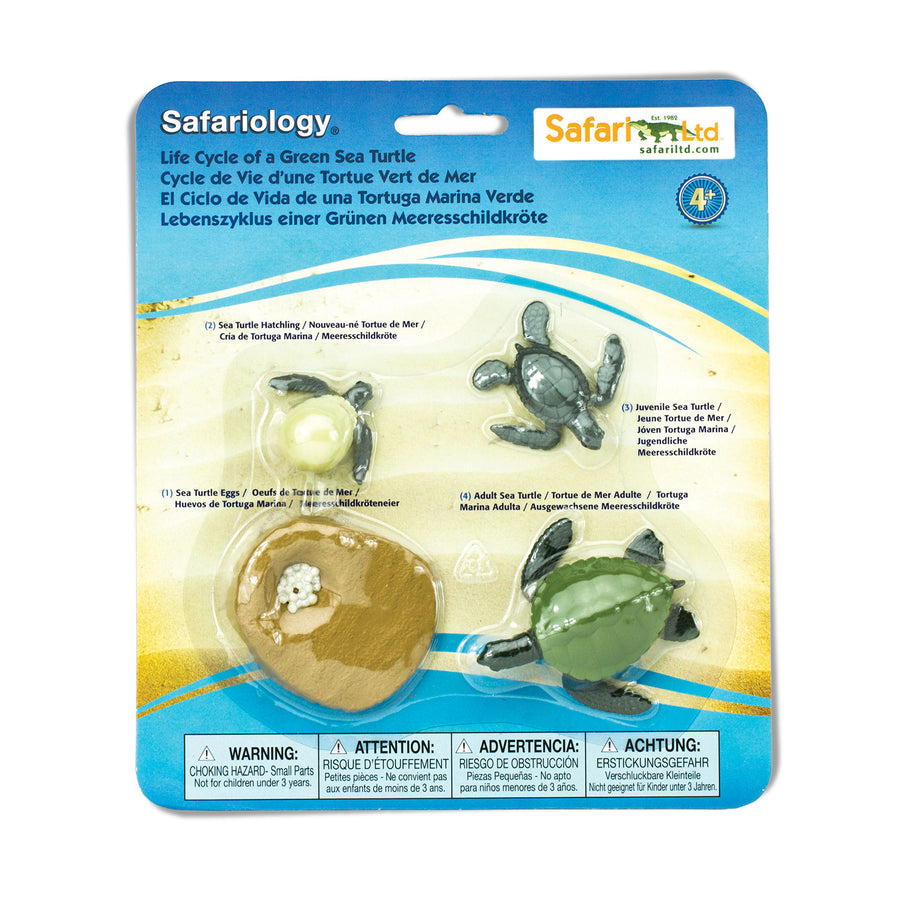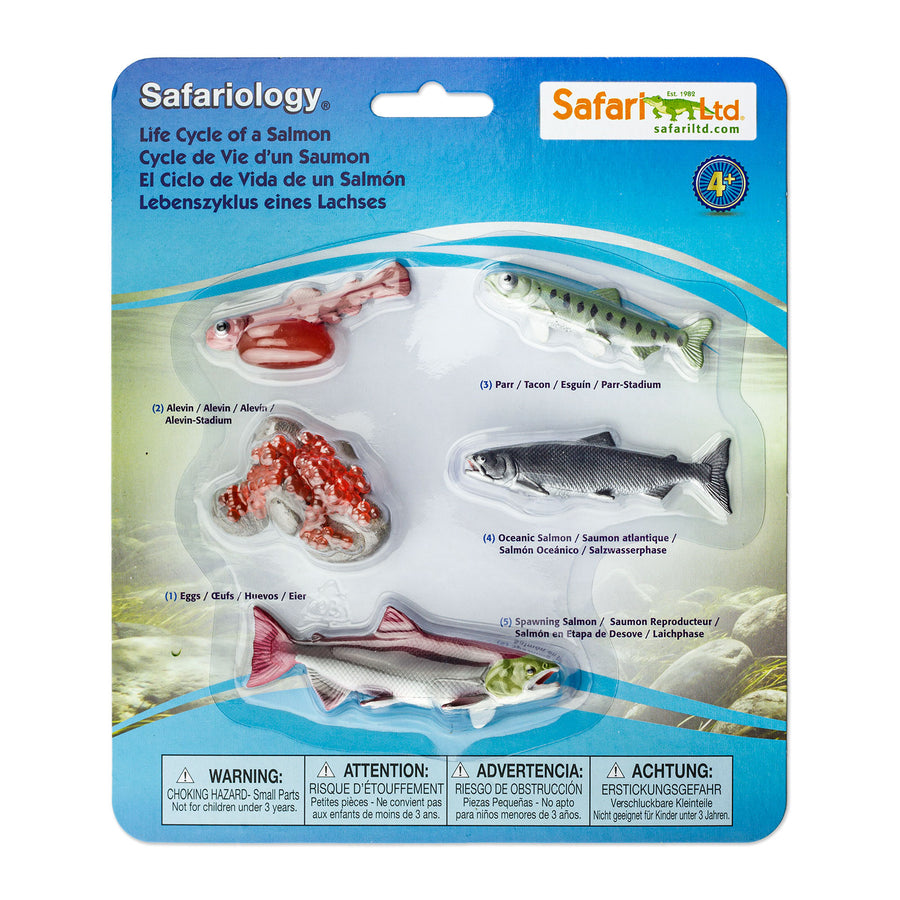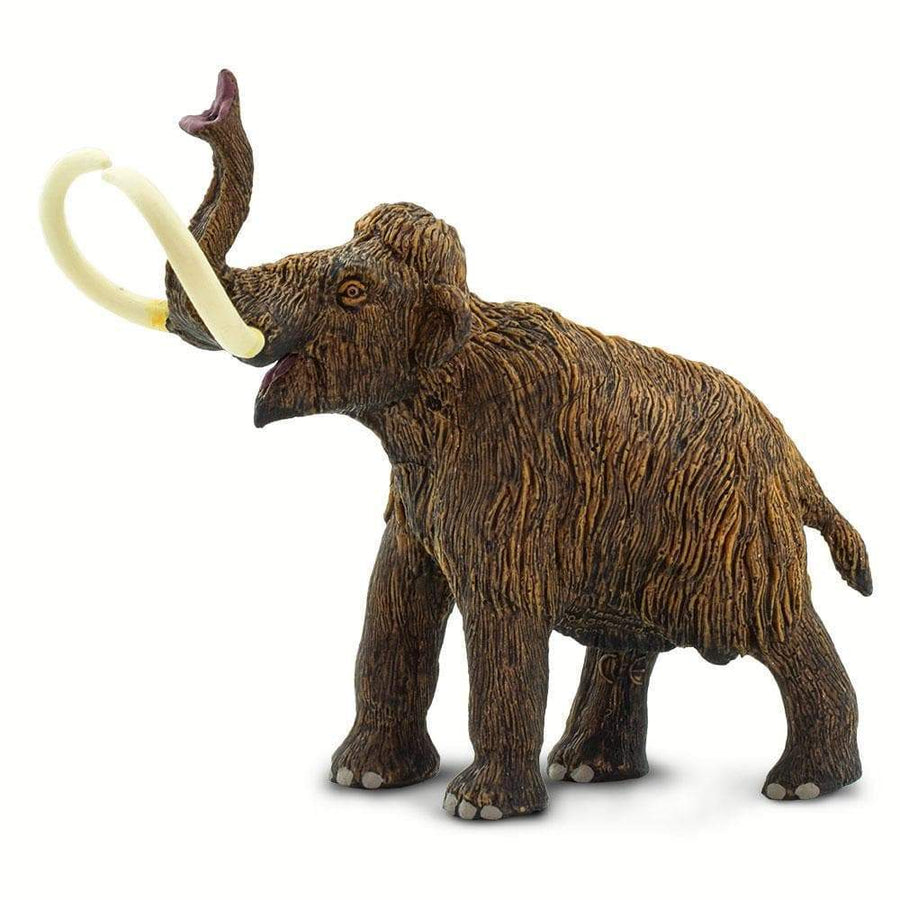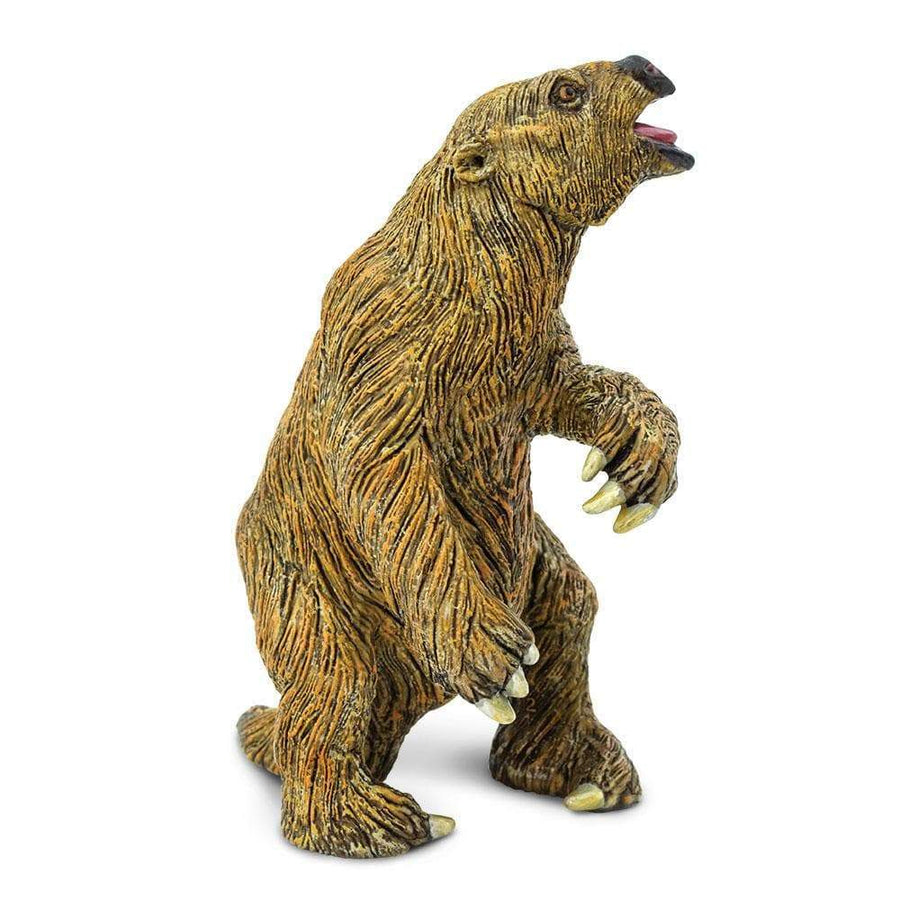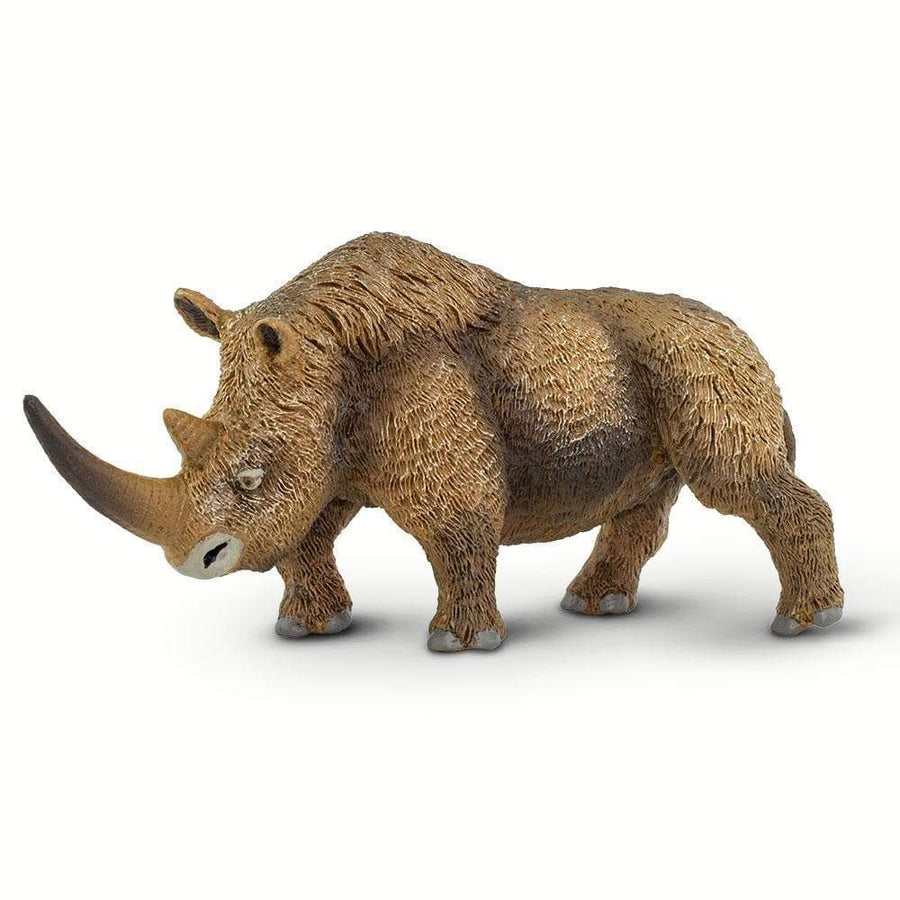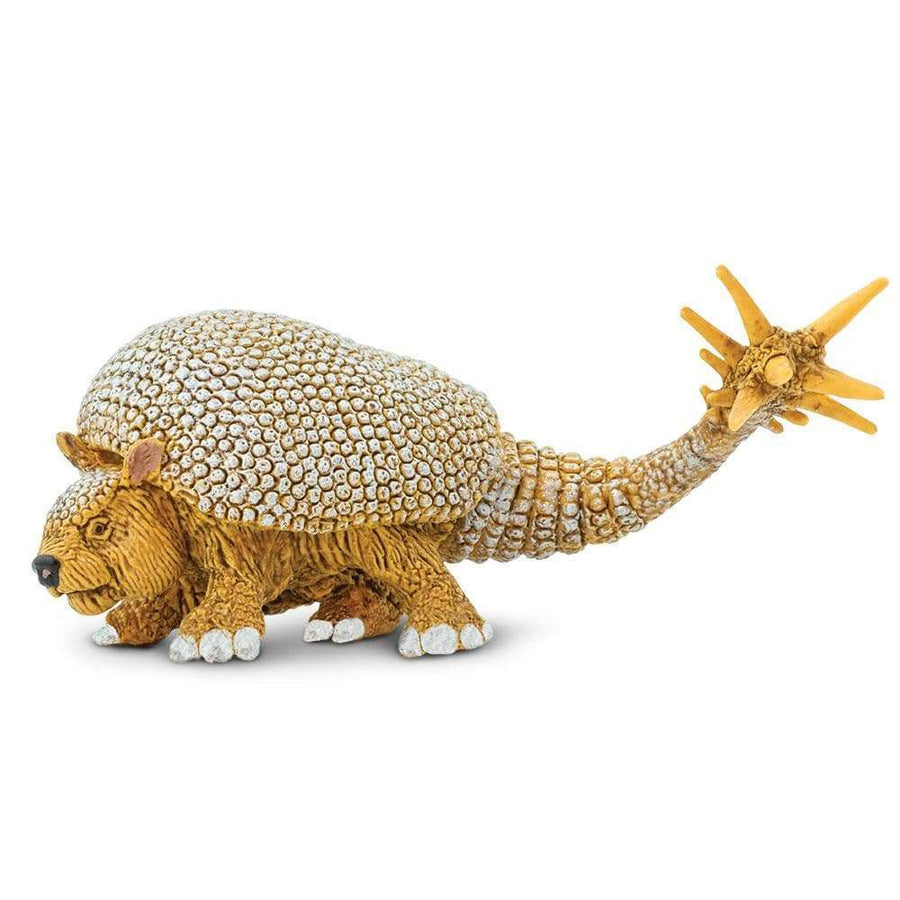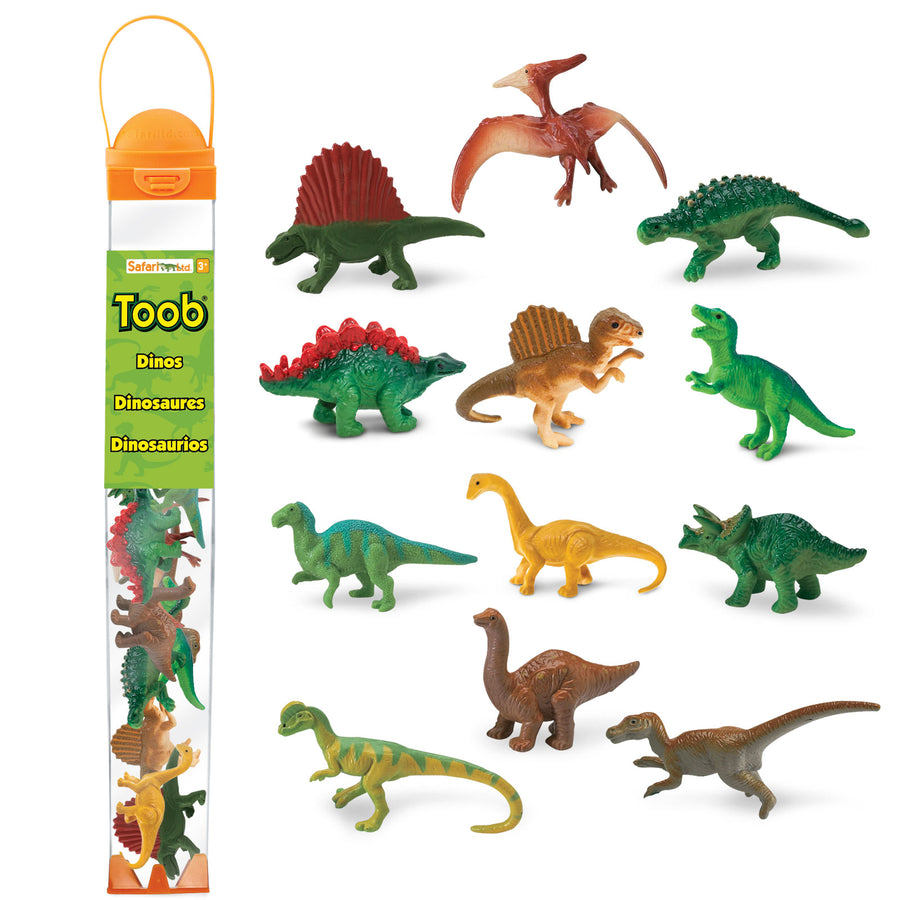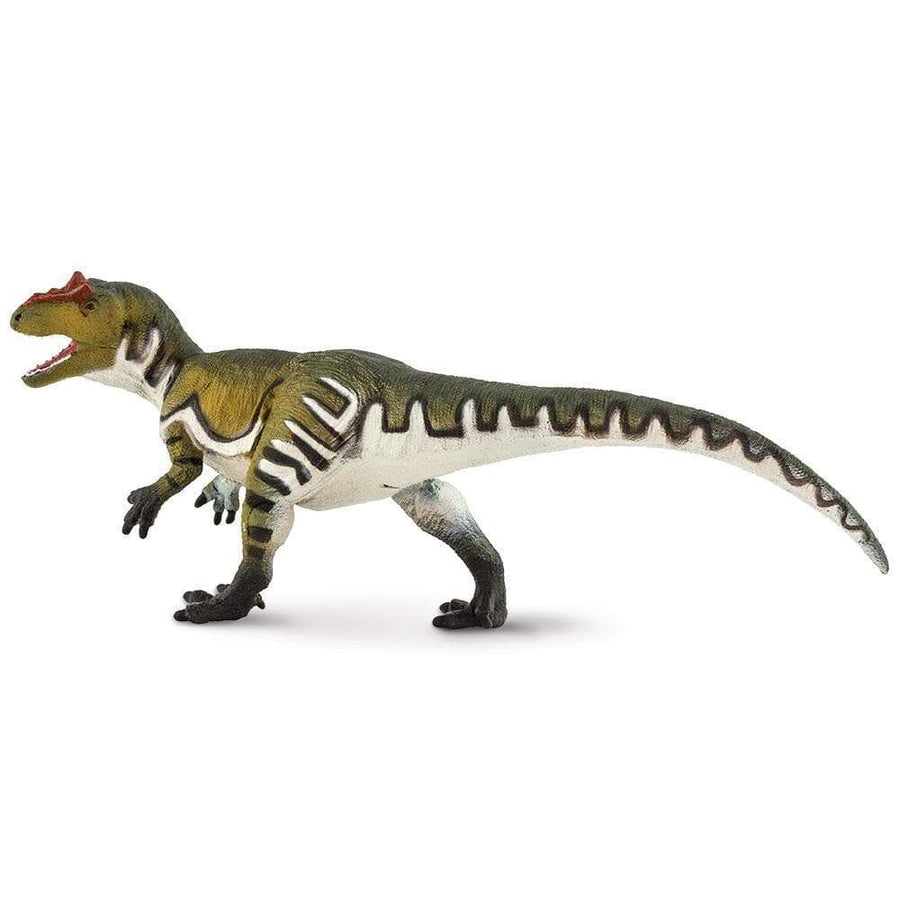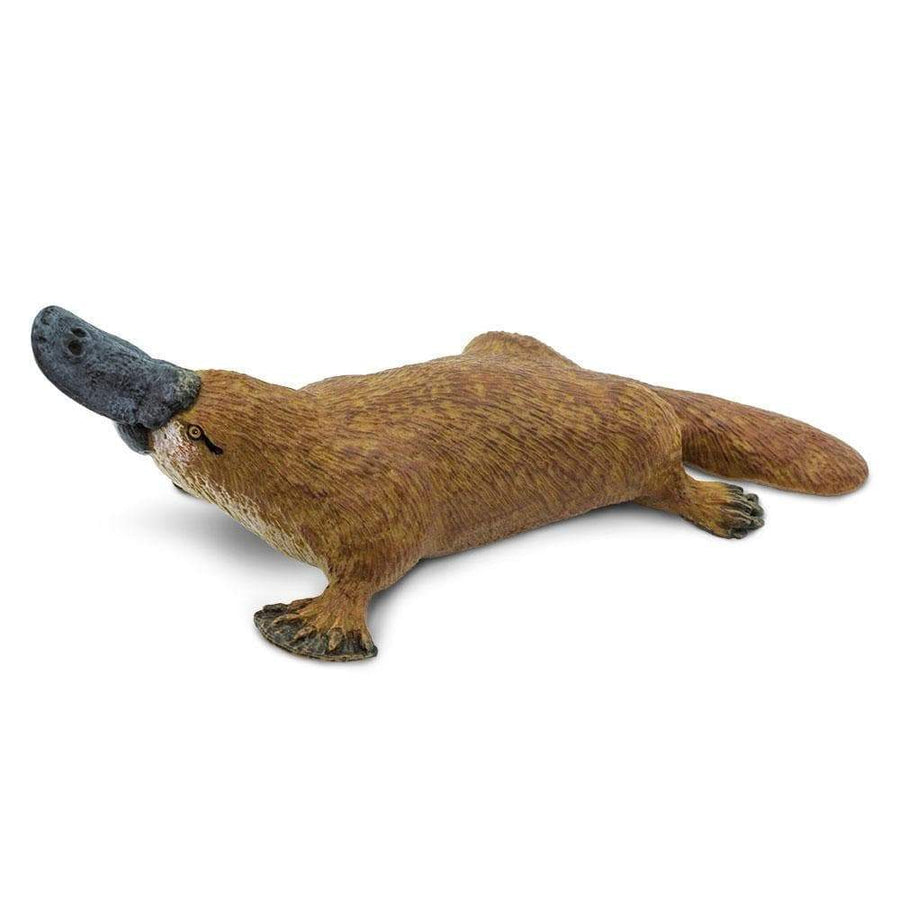More parents now look for new and engaging educational opportunities for their kids. As a result, Montessori toys are more popular than ever. These types of toys are designed to promote learning. They do so by encouraging exploration, creativity, and hands-on experiences – all rooted in the Montessori educational philosophy.
What exactly is the Montessori learning method? What are the benefits of Montessori toys, and how do they align with the greater philosophy of learning together?
We have the answers to these questions, as well as insights into how Safari Ltd.’s educational toys support Montessori-inspired learning.
What Is a Montessori Toy?
Have you ever heard of Montessori toys? Even if you haven’t, chances are high that you and your child have played with them.
A Montessori toy can be any toy or educational material that aligns with the principles of Montessori education.
What’s that, you might ask? It’s a philosophy developed by Dr. Maria Montessori, an early-20th century Italian educator and physician.
Montessori toys emphasize open-ended play, independence, and hands-on learning. While so many modern toys are flashy and overly complex, Montessori toys instead are:
- Simple and purposeful
- Made from basic natural materials like wood or fabric
- Designed to focus on one skill or concept at a time
An example of Montessori toys could be wooden stacking toys that help children develop fine motor skills and problem-solving abilities by encouraging them to think critically about size and balance.
4 Core Principles of Montessori Toys
Don’t mistake Montessori toys for random playthings. These toys are crafted in a way they support children’s development. Four core principles define Montessori toys.
1. Hands-On Learning
Kids learn best when they engage their senses. Montessori toys are great because they encourage tactile exploration. Through touch and manipulation, the toys help children understand concepts like shapes, textures, and spatial relationships. Activities like matching games with different textures or building blocks of various sizes let kids learn how to process and categorize information.
2. Independence
Montessori toys are made to empower children so they can complete tasks independently. Maybe a child is threading beads, or perhaps they’re fitting shapes into a sorter. Any of these activities builds kids’ confidence and self-reliance. For example, some child-safe kitchen tools or gardening sets can teach practical life skills all while they foster a sense of accomplishment.
3. Focus
Simple Montessori toys are free from unnecessary distractions like lights and sounds. That means children can concentrate on whatever task at hand. Sharper focus on the toys promotes mindfulness and sustained attention in other aspects of life. These are all foundational qualities that lead to success in academic and personal endeavors.
4. Open-Ended Play
Kids engage in open-ended play when they pull out their Montessori toys. The products encourage creativity since the toys can be used in multiple ways. A set of animal figurines, for example, can be used for storytelling, it can be sorted by species, or it can be used to learn about habitats. Safari Ltd. figurines are a great example of how versatile toys can inspire a child’s imagination.
Benefits of Montessori Toys
While Montessori toys are plenty fun, they’re also a lot more. In fact, they’re incredibly beneficial to a child’s overall development.
Cognitive Development
What areas of cognitive development do Montessori toys help with? They encourage problem-solving, critical thinking, and even decision making. Puzzles, for instance, challenge kids to identify patterns and find solutions. That in turn strengthens their cognitive abilities. Meanwhile, sorting toys like the ones designed to separate items by color or size do even more to boost logical reasoning and categorization skills.
Emotional Growth
How do Montessori toys inspire emotional growth in young children? As they partake in open-ended play and independently direct their own activities, kids develop patience, resilience, and self-regulation. Toys that encourage imaginative scenarios let kids practice expressing their emotions and understanding others’ points of view. Plus, playing with Montessori toys helps kids learn how to handle their frustrations when challenges arise. That gives them valuable coping skills to take with them into life.
Social Skills and Teamwork
It’s impossible to express the full value of social skills in today’s society. Montessori toys encourage teamwork through peer learning. That happens when older children mentor younger kids. Toys that facilitate group activities – think community garden kits or animal TOOBS – promote social skills and peaceful conflict resolution. In fact, these sorts of group-based play sessions can actually help kids build empathy and communication skills. Then they’ll be more successful at navigating social situations throughout life.
Physical Development
Montessori toys even support fine and gross motor skills development. Tasks like threading, stacking, and building require precise movements from kids, actions that will boost their coordination and dexterity. Larger toys like balancing boards or climbing structures help with gross motor skills development since they encourage physical activity and body awareness.
Collaborative Learning
The Montessori educational philosophy places great emphasis on the collaborative learning process. Multi-age classrooms are a hallmark of the approach since they help foster peer learning, as discussed above. The idea of older children guiding younger ones extends outside the classroom. It can be successfully practiced at home using Montessori toys.
Parents can encourage siblings to work together on shared projects such as building a diorama using TOOBS. Older kids can show young children how to set up the environment. Then the younger child learns by both observing and participating. Through this process, the older child’s prior understanding helps them build a sense of responsibility.
You can teach kids teamwork and shared responsibility with activities like community gardening or setting up a pretend store. These types of tasks can nurture a sense of community. They also teach kids about peaceful conflict resolution. By assigning specific roles in a group activity, for example, everyone is assured their own part to play.
What Makes a Toy Montessori?
How do you identify a Montessori toy? After all, not every toy labeled as “Montessori” truly aligns with the philosophy. But there are some characteristics to look for.
Natural Materials
Montessori toys are simple. They’re usually made of natural, sustainable materials like wood, cotton, or metal. Not only are these materials eco-friendly, but they provide a tactile experience that synthetic toys can lack. Wooden puzzles or fabric dolls, for instance, tend to feel more authentic and relatable to children than those made from hard plastics.
Simplicity
The toy's simplicity extends beyond their materials. Montessori playthings focus on a single task or skill. That way kids aren’t overstimulated. For example, a simple wooden puzzle teaches kids about spatial awareness without the distractions associated with flashing lights or electronic sounds. Likewise, stacking toys made of unpainted wood lets children concentrate on balance and sequencing.
Realistic Design
Montessori toys have a realistic design. They often mirror real-world objects so kids can connect playtime with their everyday worlds. Toys like detailed animal figurines or fruit replicas let kids learn about nature and practical life skills. Realistic toys like these help children gain a clear understanding of their surroundings. That then helps them build curiosity and respect for their environments.
Safari Ltd. Supports Montessori Learning
If you’re on the hunt for toys that support Montessori learning, look no further than Safari Ltd. We’ve got a huge range of educational toys that align perfectly with Montessori principles. Some of our standout collections include different figurines, replicas, and realistic models.
Safari Ltd. Figurines
Safari Ltd. figurines are a huge collection of highly detailed, lifelike replicas that can support lessons in biology, geography, and storytelling. Animal figurines, for example, teach kids about animal habitats, diets, and behaviors. Safari Ltd. figurines are also labeled with the animal’s name, which provides a self-correcting function for children able to read.
Good Luck Minis
Tiny, detailed figurines are absolutely perfect for helping kids learn to sort, count, and use their imaginations. Take a look at the Good Luck Minis collection, and you’ll find plenty of great options that align with Montessori activities
TOOBS
TOOBS are themed sets of mini figurines. They’re ideal for learning about ecosystems or historical events, as well as all sorts of other educational activities. The versatility of these toys really does a lot to support open-ended play and group projects.
Life Cycle Sets
Safari Ltd. also offers impressive life cycle sets that teach kids about animals like frogs and butterflies. Introducing concepts about animal life cycles beautifully aligns with Montessori science lessons. The kits let kids visually and tactilely explore life’s stages through hands-on activities. It’s a great way to boost their understanding of natural processes.
Dinosaur Replicas
Many kids are fascinated by history and paleontology, and dinosaur toys are always a hit. Safari Ltd.’s dinosaurs replicas are an exciting way for children to learn about prehistoric creatures. The realistic models inspire curiosity. They’re easy to integrate into lessons about timelines, geology, and evolution.
Human Anatomy Models
Another engaging way for children to explore science is by playing with Safari Ltd.’s human anatomy models. Kids can explore the wonders of the human body with detailed, interactive models that have removable parts. They’ll learn about organs, muscles, bones, and vital systems. They’re perfect for hands-on education that aligns with Montessori principles.
Tips for Choosing Montessori Toys
Finding the right Montessori toys can feel overwhelming. After all, there’s so many to choose from. Luckily, there are ways to make informed choices:
First, prioritize quality over quantity. Just a few high-quality, purposeful toys are better than a cluttered playroom. Try and look for toys that are durable and aligned with Montessori principles.
Choose toys that grow with your child. Look for options that can be used in multiple ways as a child’s skills develop. For example, stacking toys can start off by helping with motor skills, but they can later evolve into lessons about size and sequencing.
Match toys to interests. You’ll have a much better shot at keeping your child engaged with toys that meet their personal preferences. Let’s say your child loves animals. Why not choose some of Safari Ltd.’s animal figurines or TOOBS? You’ll spark their curiosity and encourage learning.
How to Incorporate Montessori Toys at Home
There are so many ways you can integrate Montessori toys into your child’s playtime routine. If you’re looking for some ideas, consider things like how you arrange the toys and what activities you include them in.
1. Set Up a Montessori Shelf
Make Montessori toys easy to access. You might think about dedicating a low, easily accessible shelf for them. Make sure you neatly arrange them so your child learns about order and gains independence when they choose their own toys to play with.
2. Rotate Toys Regularly
Too many toys can overwhelm a child. Avoid this problem by keeping only a few toys accessible at any given time. Rotate toys in and out to keep kids excited and interested.
3. Encourage Open-Ended Play
Let your child explore their own toys and use them creatively without strict instructions. Freedom at playtime helps kids develop their imaginations and problem-solving skills.
4. Create Montessori-Inspired Activity Zones
Why not set up some dedicated spaces for specific activities? You might create a reading corner with a child’s favorite books. Placing animal figurines nearby might spark an interest in, for example, biology. Or, you can instead set up a practical life station with real utensils and child-safe tools that invites kids to practice real-world skills.
5. Use Nature as a Learning Tool
Some of the best Montessori activities don’t require store-bought toys at all. Try incorporating nature into Montessori activities to inspire kids’ curiosity of the world around them. Take some Safari Ltd. animal figurines outside to create miniature ecosystems or recreate a savanna habitat. The grass, soil, and rocks in this outdoor play space offer a tactile experience that greatly enhances the overall learning experience.
The Long-Term Impact of Montessori Toys
Montessori toys are so much more than mere toys. They don’t just entertain – they lay a foundation for lifelong learning.
These toys, whether they’re building blocks, figurines, or wooden puzzles, help kids and parents learn together. Montessori toys also encourage trial and error. That teaches children that mistakes are actually learning opportunities, which prepares them for school and beyond.
Toys that promote teamwork and shared responsibility, which Montessori playthings do, instill important values like community and cooperation. By participating in collaborative activities like group gardening, kids start to understand the importance of working together.
Because they focus on hands-on exploration, Montessori toys are perfect for inspiring kids to ask questions and seek out the answers. That sort of curiosity surely will extend into adulthood as kids grow into proactive learners and problem-solvers.
Learning Together With Montessori Toys
If you’re looking for a meaningful way for your children to learn and grow, you’ve found it with Montessori toys. Toys like Safari’s figurines perfectly align with the Montessori philosophy of learning together.
In fact, Safari Ltd. features all sorts of educational toys that support Montessori principles. That makes it all the easier for parents to find high-quality options for their kids. It doesn’t make any difference if you choose lifelike animal figurines, versatile TOOBS, or imaginative Good Luck Minis, you’re bound to find something for every child’s interests.
If you’re ready to bring the Montessori philosophy into your own home, take a look at Safari’s Montessori collection to find all kinds of toys that inspire learning and creativity. Go ahead and start your journey toward learning together!
